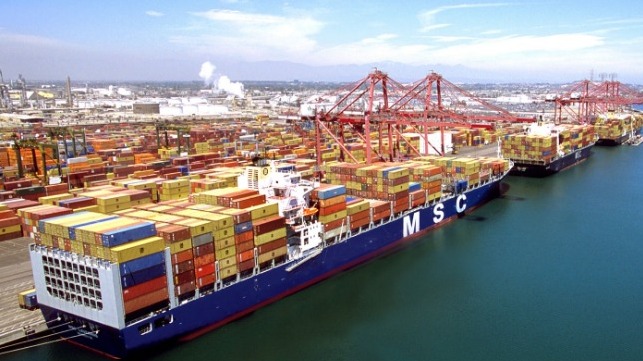California Fines MSC $630,000 for Auxiliary Engine Usage

Number-two ocean carrier MSC has paid $630,000 in penalties to the California Air Resources Board for violating California's Ocean-Going Vessel At-Berth regulation.
The violations were discovered during an audit of MSC port calls at Oakland, Los Angeles and Long Beach during 2014. The investigation by CARB revealed more than 2,500 violations at Oakland and LA/Long Beach in two categories - first, failing to reduce auxiliary engine power generation by at least 50 percent, and second, exceeding limits for auxiliary engine run time.
“Ocean-going vessels are significant contributors to air pollution,” said CARB enforcement division chief Todd Sax. "Even in port, their auxiliary engines generate toxic diesel particulate pollution that impacts not only port-adjacent communities, but also entire inland regions. This regulation helps to protect all Californians and is necessary to ensure we meet our clean air goals.”
The At-Berth Regulation is designed to reduce emissions from diesel auxiliary engines on container ships, passenger ships and other vessels while berthing at a California port. Vessel operators can either turn off auxiliary engines and connect to grid-based shore power, or use alternative technologies to achieve equivalent emission reductions while in port. The regulation ultimately requires fleet operators to reduce at-berth NOx and particulate matter emissions from auxiliary engines by at least 80 percent by 2020.
MSC cooperated with the investigation and later converted its California fleets to include 100 percent shore power-equipped vessels, and it has had no further violations of the At-Berth regulation. The fine was paid to the California Air Pollution Control Fund to support air pollution research, and the company agreed to comply with all requirements of the regulation.
CARB also fined MSC $350,000 in April for violations of the California Ocean-Going Vessel Fuel Regulation. Four vessels were found to have failed to comply with the rule, including one ship that failed to comply twice. MSC corrected the matter once notified and created a compliance plan.
